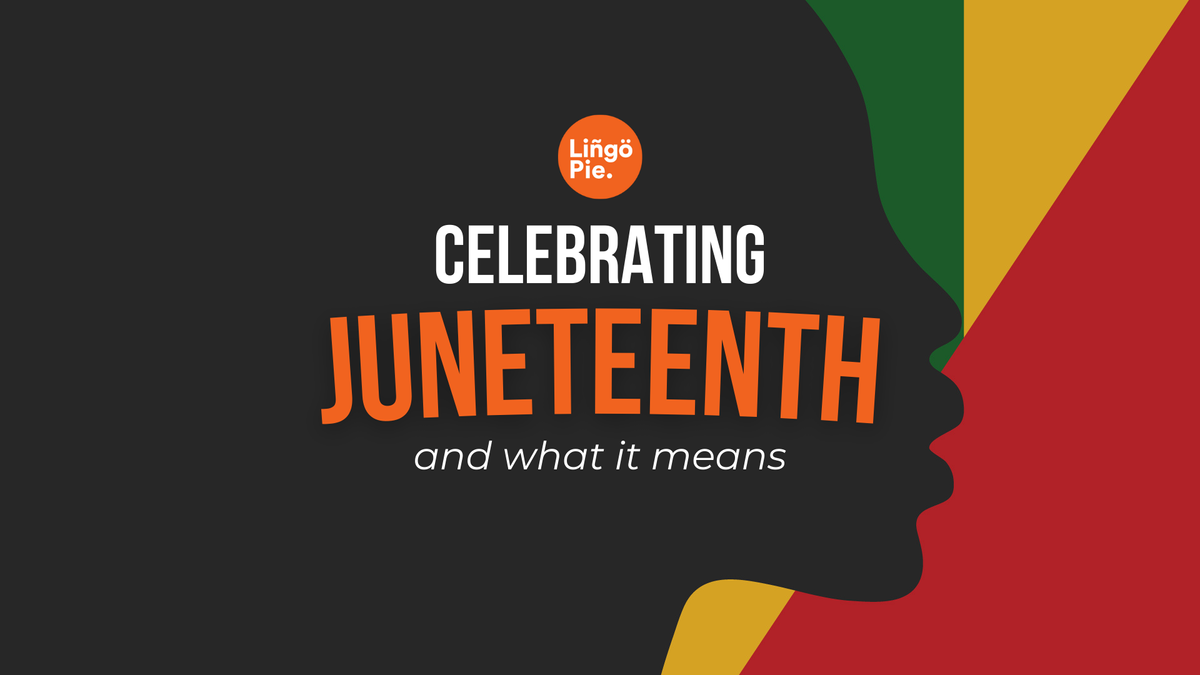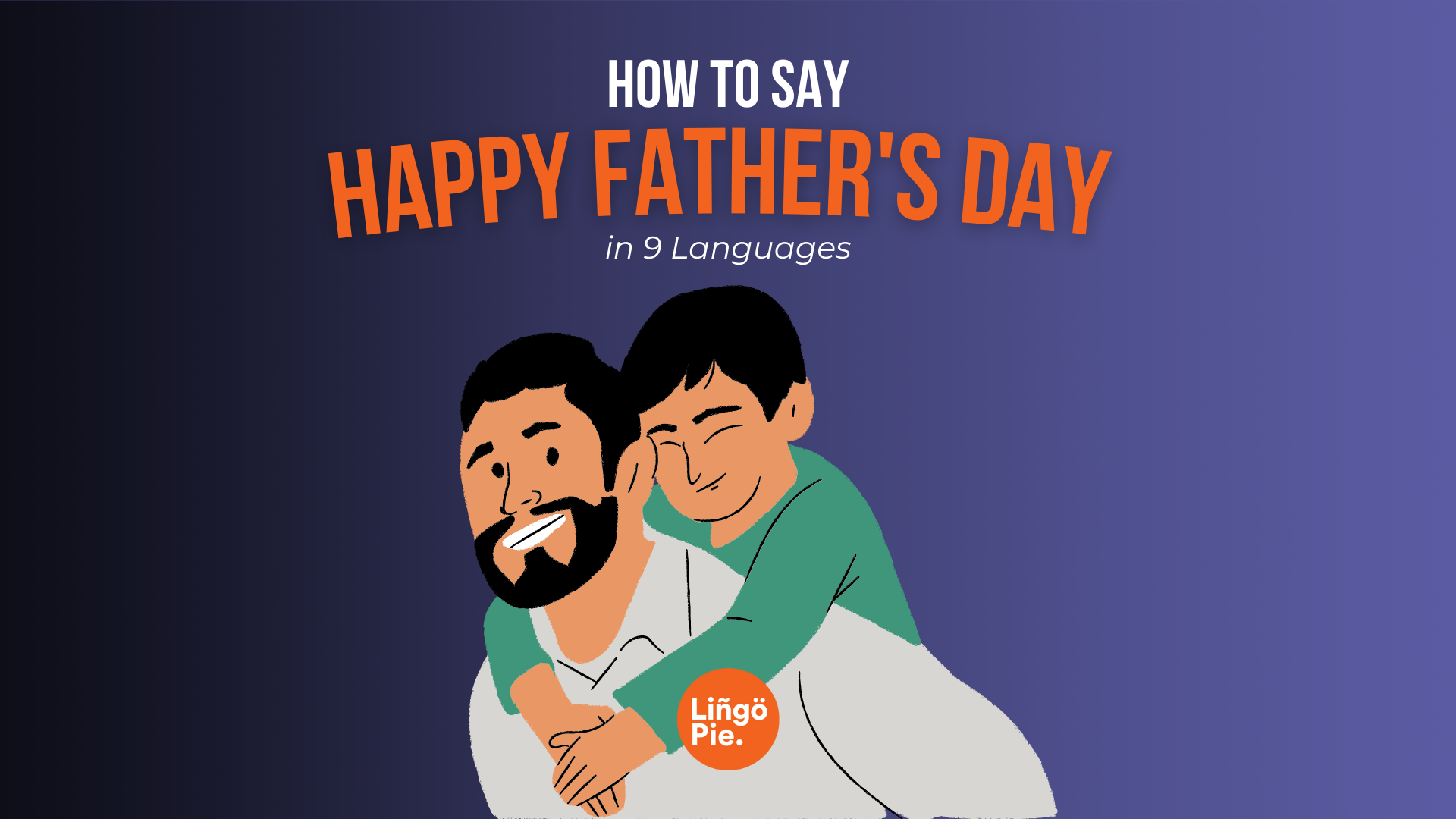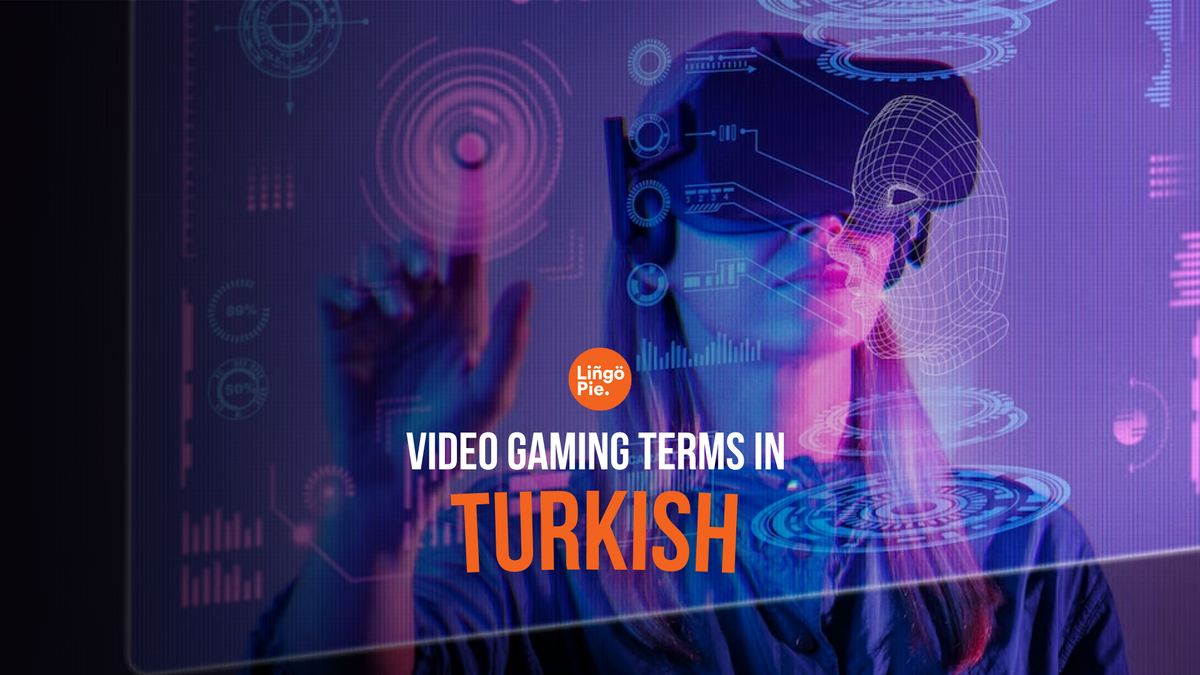There are many internationally known dates in the United States, but one that is often less recognized is Juneteenth, yet it holds significant importance in American history.
Juneteenth is a day of mixed emotions, symbolizing both past struggles and the ongoing quest for justice and equality.
For English language learners, understanding Juneteenth offers a profound opportunity to delve into the cultural tapestry of the United States. By exploring its origins, historical significance and modern-day celebrations, you can improve not only language skills but also deepen your understanding of American society.
Enjoy hundreds of hours of American TV shows to grasp American culture better and master your American English accent with Lingopie. Start your free trial today!

What is Juneteenth?
Also known as Freedom Day or Emancipation Day, Juneteenth commemorates June 19, 1865, when Union General Gordon Granger arrived in Galveston, Texas, and issued General Order No. 3, proclaiming the freedom of all enslaved African Americans in Texas. This announcement came over two years after President Abraham Lincoln's Emancipation Proclamation, which had officially freed slaves in Confederate states on January 1, 1863.
The delay in Texas was largely due to the limited presence of Union troops and the resistance of slaveholders to comply with the proclamation. Juneteenth marks not only the belated enforcement of emancipation in Texas but also symbolizes the final emancipation of slaves in the United States as a whole.

Juneteenth: a day for celebration
Granger’s announcement on June 19th became a deep symbol of freedom and celebration: the day slavery was finally abolished in Texas, which lead ultimately to the abolition of slavery in all of the remaining Southern states.
Earlier celebrations of Juneteenth included religious services, speakers with inspirational messages, stories from former slaves, games and dancing.
For many years, Black communities in the South had to celebrate Juneteenth on the outskirts of town due to. To create a safe and inclusive space for their gatherings, groups celebrating Juneteenth often pooled resources to purchase land in the city. These areas are known as Emancipation Parks and continue to serve as important historical and cultural landmarks today.
How Juneteenth is celebrated today
Celebrations for Juneteenth were lost throughout the second half of the twentieth century. However, in the last few years, Juneteenth has gained much more popularity.
In 2021, President Joe Biden signed a law making Juneteenth a national holiday in the United States. It is deeply connected to the broader social and racial justice movements that gained significant momentum following the murder of George Floyd, an African American man, by a police officer in May 2020.
This tragic event sparked nationwide and global protests against police brutality and systemic racism, highlighting the urgent need for meaningful reforms and recognition of the historical and ongoing injustices faced by African Americans.
Against this backdrop, the decision to designate Juneteenth as a national holiday can be viewed as part of a broader initiative to recognize and address America's difficult history with race. By establishing Juneteenth as a federal holiday, the U.S. government acknowledged the significance of celebrating the liberation of enslaved African Americans. Also, it affirmed the need to confront the continuing impact of racial discrimination.
Today, Juneteenth is celebrated with a variety of activities that honor African American culture and history. Communities across the United States come together for family reunions, picnics, and barbecues. Festivities often include parades featuring colorful floats, marching bands, and local performers, while festivals showcase live music, dance, poetry readings, and historical reenactments.
Educational events play a significant role, with lectures, panel discussions, and workshops focusing on African American history and the significance of Juneteenth.
Spiritual ceremonies, including church services and prayer gatherings, highlight the deep-rooted faith and resilience of African American communities. Symbolic traditions, such as the raising of the Juneteenth flag, lighting bonfires, and setting off fireworks, underscore the celebration of freedom and the ongoing fight for equality.
Public art displays and the dedication of monuments also serve as poignant reminders of the journey from slavery to emancipation and the contributions of African Americans to society.

How to Celebrate Juneteenth as a Language Learner
Celebrating Juneteenth as a language learner offers a unique opportunity to deepen your understanding of American history, culture, and the ongoing struggles for racial equality. Here are some ways to celebrate Juneteenth while enhancing your language skills:
Watch Films and Series
Engage with films and series that address the themes of slavery, racial discrimination, and civil rights. Watching these with subtitles or in the language you're learning can improve your listening skills and expand your vocabulary related to social justice and history.
Related:

Here are five films and series that address racial discrimination in the US or slavery, offering powerful insights into these crucial aspects of American history:
12 Years a Slave (2013)
This film tells the true story of Solomon Northup, a free African American man who was kidnapped and sold into slavery. It provides a harrowing depiction of the brutality of slavery and the struggle for freedom.
Roots (1977 and 2016)
"Roots" is a miniseries based on Alex Haley's novel, tracing the history of an African American family from the capture and enslavement of Kunta Kinte to the Civil War and emancipation. The original 1977 series and the 2016 remake are both impactful.
The 13th (2016)
Directed by Ava DuVernay, this documentary explores the intersection of race, justice, and mass incarceration in the United States, analyzing how the legacy of slavery continues to impact modern society.
When They See Us (2019)
This miniseries, also directed by Ava DuVernay, dramatizes the true story of the Central Park Five, a group of African American and Latino teenagers wrongfully convicted of a violent crime. It sheds light on issues of racial profiling and injustice.
Selma (2014)
"Selma" chronicles the 1965 civil rights march from Selma to Montgomery, led by Dr. Martin Luther King Jr. The film highlights the struggle for voting rights and the broader fight against racial discrimination.
Lingopie offers thousands of hours of the best TV shows and movies to help you in your language learning. Explore its wide catalogue for free!
Read Literature
Explore books, articles, and essays about Juneteenth, African American history, and the experiences of enslaved people. Reading in your target language helps with comprehension and exposes you to different writing styles and historical contexts.
Here are three books that provide insightful perspectives on Juneteenth, African American history, and the experiences of enslaved people:
“Juneteenth for Mazie" by Floyd Cooper
This beautifully illustrated children's book tells the story of a young girl named Mazie who learns about the significance of Juneteenth from her father. It is an excellent introduction to the history and importance of the holiday, presented in a simple and engaging manner.
The book uses straightforward language and vivid illustrations, making it accessible for language learners at beginner to intermediate levels. It also provides a cultural context that enhances understanding.
“The Underground Railroad" by Colson Whitehead
This Pulitzer Prize-winning novel reimagines the Underground Railroad as an actual railroad system, following the journey of a young enslaved woman named Cora as she seeks freedom. The book combines historical fiction with elements of magical realism.
Whitehead's clear and compelling writing style makes the book accessible for intermediate to advanced language learners. The novel provides a deep exploration of the history of slavery and the quest for freedom.
“Narrative of the Life of Frederick Douglass, an American Slave" by Frederick Douglass
This autobiography of Frederick Douglass, an escaped slave who became a prominent abolitionist and writer, details his experiences and the brutal realities of slavery. It is a powerful firsthand account of resilience and the fight for freedom.
Douglass's narrative is written in a clear style that is suitable for intermediate language learners. The book not only offers historical insights but also enriches vocabulary related to slavery, freedom, and civil rights.
Visit Cultural Sites Virtually
Many museums and cultural institutions offer virtual tours and exhibits on African American history. Explore these resources to gain visual and contextual understanding while practicing your language skills.
Here are two examples:
Smithsonian National Museum of African American History and Culture
The Smithsonian National Museum of African American History and Culture (NMAAHC) in Washington, D.C., offers a range of virtual tours and digital exhibitions that explore African American history, culture, and achievements.
The Legacy Museum: From Enslavement to Mass Incarceration
Located in Montgomery, Alabama, The Legacy Museum offers a powerful exploration of the connections between the history of slavery, racial terror, segregation, and mass incarceration. The museum provides a range of virtual resources to engage with this history.
A Day to Acknowledge and Celebrate
Juneteenth may not be as widely recognized internationally as other American holidays, but its significance in American history is profound. It serves as a powerful reminder of the struggle for freedom and the ongoing pursuit of justice and equality.
To further immerse yourself in American culture and improve your English, join Lingopie to access a wide range of resources, including TV shows and movies. Start your free trial today and take a significant step toward mastering American English!
FAQS
Why is it called Juneteenth?
Juneteenth is named after the combination of "June" and "nineteenth," which refers to the date June 19th. On that day in 1865, Gordon Granger and his troops arrived at Galveston and announced that the war had ended and that the enslaved were now free.
Is Juneteenth a national holiday?
Yes, Juneteenth has been a national holiday in the United States since 2021. The Senate voted by unanimous consent to make Juneteenth the 11th annual national holiday on the federal calendar, and the House of Representatives passed a similar measure. President Joe Biden signed it into law hours later.
Are shops closed on Juneteenth?
In recognition of these traditions, many businesses, stores, and services close for Juneteenth to honor the holiday and allow employees to celebrate. Most banks and post offices will be closed, as well as government offices. However, some retail businesses will remain open.






![How To Say Happy New Year In Hebrew [15+ Terms And Phrases]](/blog/content/images/size/w300/2025/12/how-to-say-happy-new-year-In-hebrew.jpeg)
![How To Say Happy New Year In Dutch [Plus 10+ Useful Words]](/blog/content/images/size/w300/2025/12/how-to-say-happy-new-year-In-dutch.jpeg)
![How To Say Happy New Year In Polish [15+ Useful Words]](/blog/content/images/size/w300/2025/12/how-to-say-happy-new-year-In-polish.jpeg)